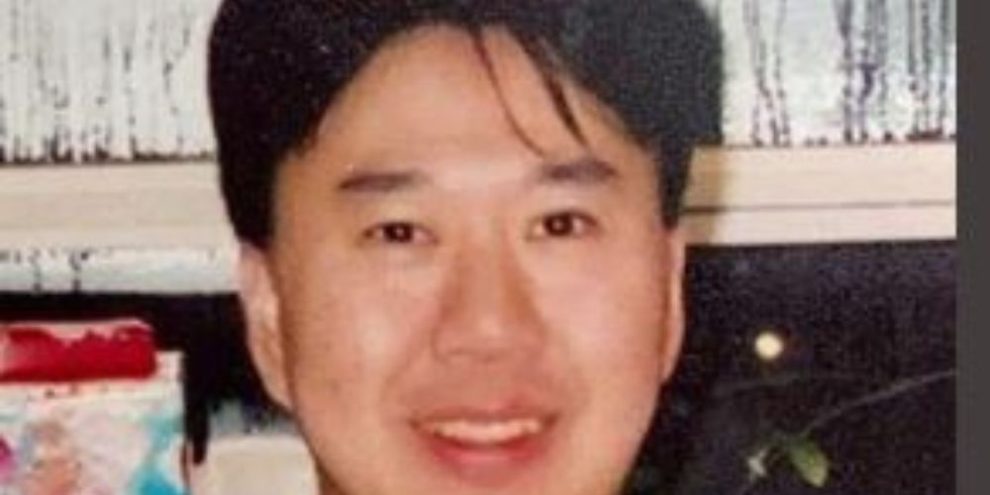
By Fakiha Baig in Toronto
The family of a homeless man who died after allegedly being stabbed by a group of teens is raising concerns about Canada's bail system and calling for the laws that protect the identity of youths accused of serious crimes to be demolished.
Toronto police have said Ken Lee, 59, who had moved into the city's shelter system in recent months, died in mid-December after allegedly being swarmed and stabbed by a group of eight girls. Community members have said the kind, quiet man from Hong Kong was trying to defend a friend before the attack.
Three 13-year-olds, three 14-year-olds and two 16-year-olds are facing second-degree murder charges in Lee's death. One girl has been granted bail while bail hearings have been scheduled for the seven others.
None of the teens can be identified under the Youth Criminal Justice Act.
In a written statement, Lee's family said individuals accused in serious crimes should not be granted privacy rights or bail.
"How is the Act protecting the public if we don't know who these perpetrators are and why they are released on bail?" said Eric Shum, one of Lee's family members.
"As a parent, my question to the lawmakers who wrote the Youth Criminal Justice Act is how are you protecting my child if the perpetrator cannot be named and she could be in my child's school or class?"
He argued that naming alleged attackers could lead to more alleged victims, evidence and witnesses coming forward. He also argued the YCJA protects criminal youths and not victims or the public.
Youth ages 12 to 17 are covered under the YCJA. The act states that the fact that they are still maturing must be accounted for in the prosecution of crimes, and emphasizes rehabilitation and reintegration into society.
Toronto Mayor John Tory said he received an email from Shum this week and thanked Lee's family for sharing their "call for justice."
"This murder was horrific and my thoughts continue to be with Eric, and all of Ken’s family and loved ones as they continue to grieve. I hope they will see justice done," Tory said.
"I will continue to support doing everything we can as a municipal government to combat violent crime. That includes supporting our police, investing in kids and families to address the roots of violence, and advocating for tougher laws including bail reform.”
Shayan Shaffie, a criminal lawyer with Shaffie Law, said in an interview it's important to acknowledge the pain Lee's family is going through.
"In moments of crisis and significant pain, like what the Lee family is enduring, there is a tendency to call for very strict sanctions and to demand that the criminal justice system yield to those types of powerful emotions," Shaffie said.
But he said it's not so easy to transform laws that protect the privacy of youth or release them on bail because they serve a very necessary purpose.
"The Youth Criminal Justice Act and the Charter of Rights and Freedoms, which informs how the Act is interpreted, tries to strike a very delicate balance between holding young people accountable in criminal cases, and simultaneously acknowledging that young people have diminished moral culpability.
"Young people have yet to acquire the lived experiences that will permit them to act more rationally in the world and, in recognition that their future lies ahead them, even if they have committed a terrible mistake or a crime."
That's an important distinction that the criminal justice system makes, Shaffie said.
As for bail reform, Shaffie said Canadians need to keep how the current system works in mind whenever there are calls to reform it.
"There is no crime in Canada for which you are ineligible for bail and there is no crime in Canada for which you can be alleged to have committed in which you're not presumed innocent," he said.
Shaffie said those wanting bail laws to be reformed generally want to make certain crimes ineligible for bail. He said that's what it appears Lee's family is calling for.
Police have said they believe the accused teens congregated after meeting on social media and are from homes across the Greater Toronto Area. Three of the girls had previous interactions with police, while five others did not.
Seven of the teens are set to return to court in the coming weeks.
Police are also investigating a case of up to 10 teen girls who allegedly assaulted several people at Toronto subway stations hours before Lee was stabbed. They have not confirmed if that group is the same as the one accused in Lee's death but have said they are looking for alleged assault victims.
Meanwhile, Shum says Lee was a "kind soul with a heart of gold" who was not homeless because of alcohol or drug use.
"He was a man with pride who had fallen and wanted to learn to stand up on his own knowing that he always had his family behind him," Shum wrote, adding that his death is still painful for the family.
Banner image: THE CANADIAN PRESS/HO-Toronto Police Service
This report by The Canadian Press was first published Jan. 20, 2023.





